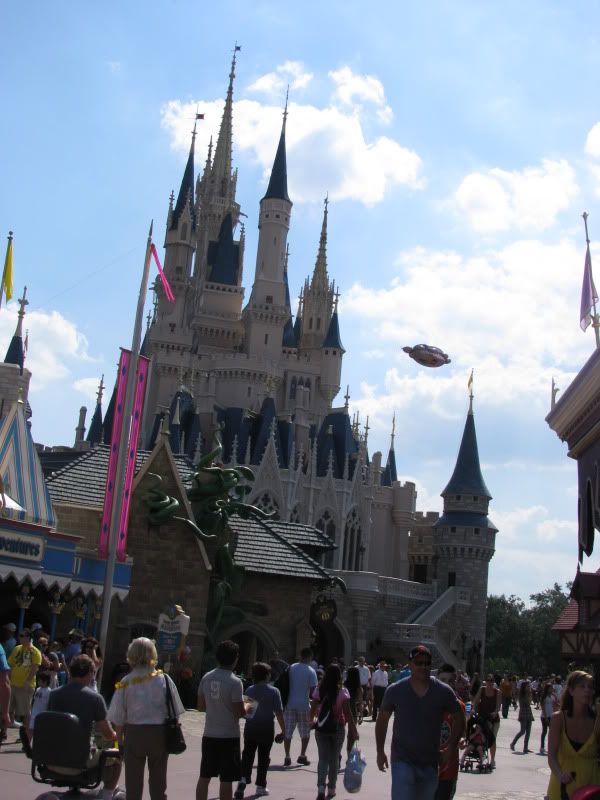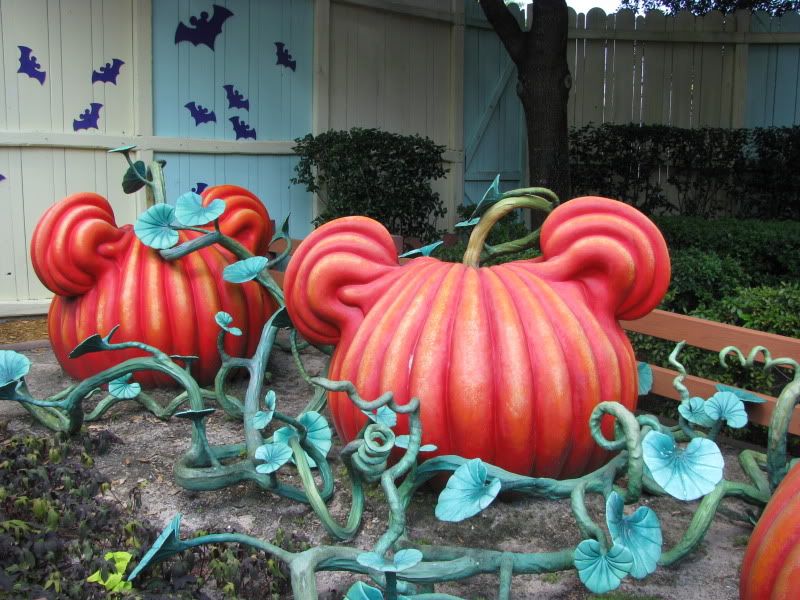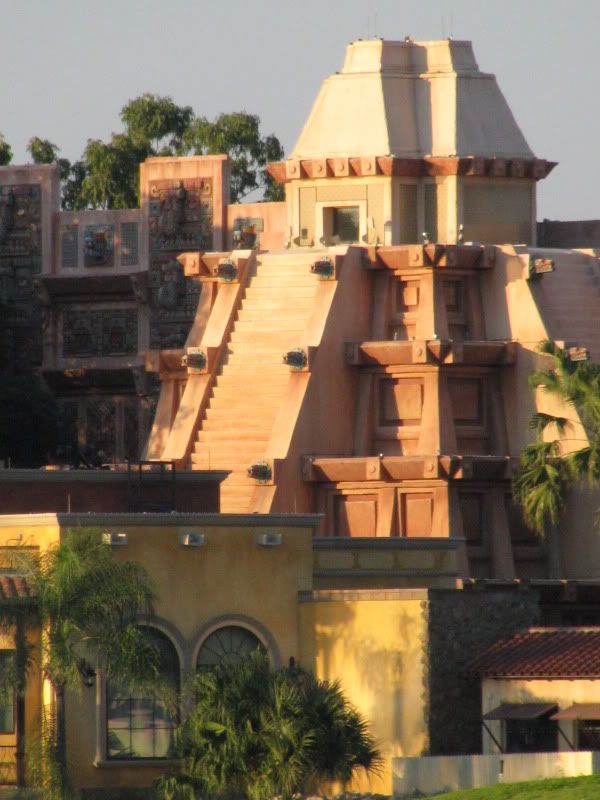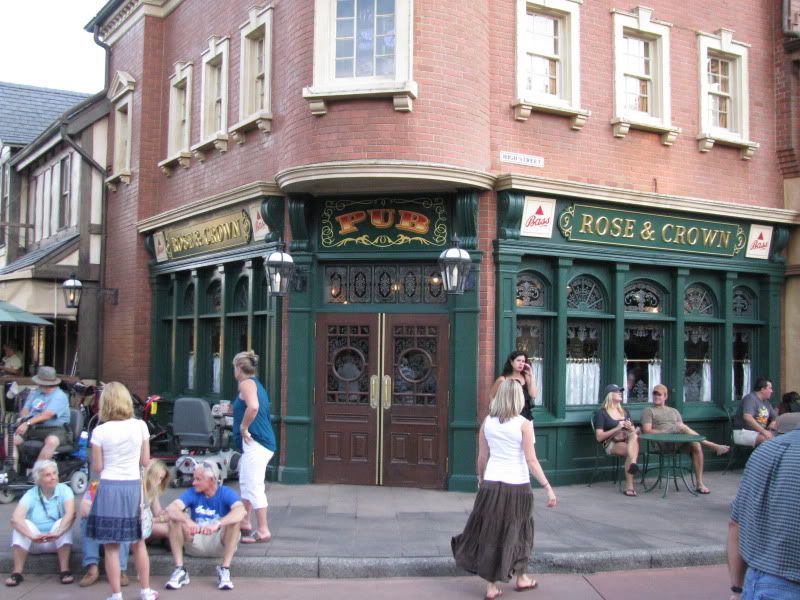
The typical Disney picture

Mickeys pumpkins

Epcot - Mexican Pavillion

Blogging from Slidell, Louisiana about loving life on the Gulf Coast despite BP and Katrina






| From Oil to Red Tape, The BP Mess Continues Posted: 03 Oct 2010 04:00 PM PDT By Veronica Del Bianco In drastic contrast to the tragic oil rig explosion in the Gulf, the eventual capping of the BP well in September was quiet and unceremonious because it meant little in the way of recovery for many along coastal Louisiana. The oil may have stopped gushing into the Gulf, but it's economic impacts continue to spread. "I really thought there would be this flood of fishermen back to the water but it's been very slow," says Gary Bauer, owner of the dock and processing plant Pontchartrain Blue Crab, Inc. at Slidell, La. "They are hesitant. They are waiting to see what happens." Bauer is a big man whose voice becomes quiet when talking about the future of his business and his community. "I got a wife and kids," he says, his voice beginning to waiver. "It's the way I support my family. If the business collapses – I have right at about 100 employees right now – what happens to them? I buy from over 150 fishermen directly. I'm not going to make or break Louisiana seafood but if I fail … what does that say?" Bauer has run the numbers. Between April 20 and August 31 in 2008 and 2009, he purchased 1.8 million and 1.84 million pounds of seafood, respectively. This year, he has only purchased 800,000 pounds during the same period of time. "We're off a million pounds of seafood for the time since the spill," he sys. "That's how much of a drop we have taken." Since the oil spill, Bauer has lost two major accounts – one because of a shortage of supply, and the second because of the negative brand perception of Gulf seafood. For more than ten months, Bauer had worked on a deal worth $750,000 a year with a restaurant chain throughout the southeast to provide them with cooked crabs. But after the rig exploded and oil closed a majority of the fishing grounds, he couldn't get enough crabs, and the restauranteur pulled the plug on the project. "That would have been a substantial repeating business year after year," says Bauer. "That was probably the most disappointing and devastating effect of the spill. If I had to pinpoint any one thing, that would have been tremendous." The second account he lost not because he couldn't supply the machine picked crab meat promised, but because the buyer, who processes crab cakes, no longer wanted to purchase it. "I lost one customer up north in Baltimore," reports Bauer. "He said 'you can't get another cup? My customer will take your meat in any cup that doesn't say product of Louisiana.'" Bauer does not understand how BP and Feinberg can continue to say there is no problem with the perception of Gulf seafood. "I am Pontchartrain Blues," says Bauer, "and, Lake Pontchartrain was shut down to commercial fishermen for quite some time. That makes the news. And now my name is associated with the spill. It took me ten years to build that name brand. It took 160 days for them to destroy that image." Since April 20th, Bauer has gotten two compensation checks from BP but nothing since Feinberg took over. "There are businesses similar to mine that closed, and because they closed it's easy to prove their loses," says Bauer. "It's cut and dry and they'll be paid. But because I made the decision to stay in business, it's going to be quite a job to prove my loses to BP and Mr. Feinberg." Bauer worries that he will be penalized for staying open and trying to maintain his production, labor force and customer base. "I give myself – the business – maybe a 50/50 chance of being in business six months from now," sighs Bauer, "and less than that if some kind of financial assistance doesn't come through – soon." For Gary Bauer, his business Pontchartrain Blue Crabs, Inc. and the fishermen who sell their catch to him, the caping of the BP well was not the end of the disaster, only the end of the beginning. Now they find themselves in the middle of a bigger mess – red tape. Photos by Peter Forest. |
Nearly 10 years after St. Tammany Parish negotiated the deal to purchase Camp Salmen to preserve the 106-acre site for public use, the former Boy Scouts bivouac will welcome its first visitors Saturday afternoon at a grand opening celebration.
The event will begin with guided walks on Camp Salmen Nature Park's interpretive trails at 1:30 and 2 p.m., followed by a presentation and flag-raising by Parish President Kevin Davis at 2:30 p.m. The 1944 Big Band will perform from 3 to 5 p.m.
The parish is encouraging visitors to bring ice chests and chairs for picnic-style seating at Camp Salmen, which is located on U.S. 190, less than a mile east of Northshore Boulevard. Temporary signs on U.S. 190 will lead visitors down a new road leading to the park, as the parish had not yet decided Tuesday on a name for the road, said Tom Beale, a parish spokesman.
Originally donated by Fritz Salmen of the Salmen Brick and Lumber Company to the Boy Scouts in 1924, the site served as the primary regional Boy Scouts camp in Southeast Louisiana until 1983, when the organization left St. Tammany Parish for a larger, more rural site in nearby Kiln, Miss. The parish worked with the Trust for Public Land to purchase the property in 2001 and secured federal grants to fully acquire the property in 2004.
The interpretive trails include paths and a raised boardwalk along Bayou Liberty that is expected to measure more than five miles by year's end. In addition, families can gather at the park's 5,000 square-foot, open-air pavilion -- the site of the former Scout dining hall.
The new Order of the Arrow Garden, which contains the nearly 200-year-old Camp Salmen Live Oak and is surrounded by new plantings and brick ruins, pays tribute to the ritual of honoring top Scouts at the end of each summer.
Officials hope in later years to further transform the site, building a welcome center at the park's entrance, an administrative building, additional pavilions and an amphitheater at the bayou's edge with a dock leading to the old Salmen Lodge, which is included in the National Register of Historic Places.
The plan is to convert the lodge, which likely served as the first trading post in the Bayou Liberty region and later as the camp director's residence, into a museum to teach school children about the history of the building and the area, officials have said. Teachers would be able to bring their students to the "outdoor classroom" that the park will provide, while another building would house a museum showcasing Scout culture.
Officials also want to restore the flag pole area and a monument to Fritz Salmen, who with his family donated all 106 acres that comprise the site. The parish purchased an additional 30 acres to build the new road leading into the park from U.S. 190.
Further, the parish plans to build a bike path through the park, with the idea of connecting it to the Tammany Trace in the future. The Trace now stops at Neslo Road, not far from the park.
For more information, call 985.898.5243 or visit Camp Salmen Nature Park's website at www.campsalmennaturepark.org.
